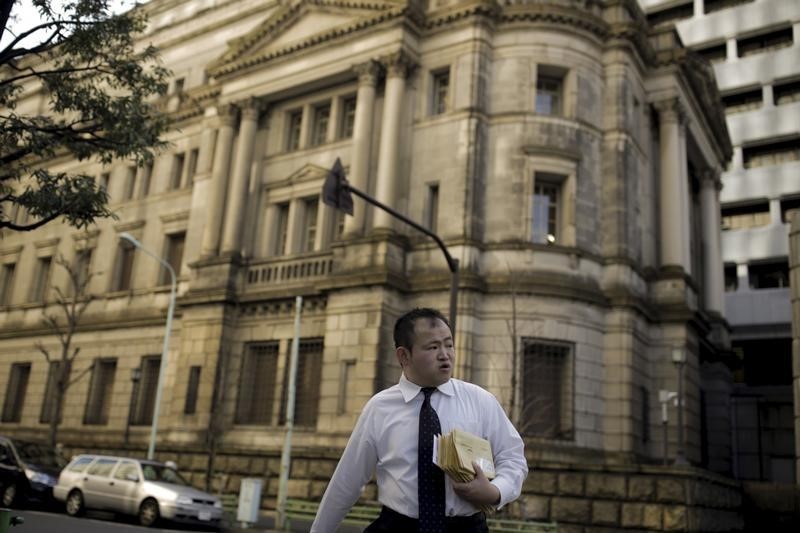(Bloomberg) -- The Bank of Japan has the tools to eventually exit its record monetary easing without disrupting markets, according to Masayoshi Amamiya, a nominee for one of the two deputy governor positions at the central bank.
The BOJ can adjust bond yields in a stable manner when the time comes for it to start normalizing its policy, Amamiya said at a confirmation hearing in parliament on Monday. The comments came after Governor Haruhiko Kuroda said that during the fiscal year starting in April 2019 the BOJ would probably be considering the details of any exit.
Amamiya’s position on exit and a comment that monetary policy is not all powerful contrast starkly with the views of Masazumi Wakatabe, the nominee for the other deputy governor post. Wakatabe, also speaking in parliament, said there were theoretically no limits to what the BOJ can do to achieve the 2 percent inflation target, and it should mull boosting stimulus if it became hard for prices to hit that level.
“Amamiya and Wakatabe played it safe at the hearing” said Kyohei Morita, chief Japan economist at Credit Agricole (PA:CAGR), noting that Kuroda’s comments had stirred up markets last week. “They indicated that it’s very unlikely for the BOJ to change policy anytime soon.”
The two men are likely to be approved by parliament, and will join the policy board for the April meeting. Along with Kuroda, who was nominated for another term, they will continue to face questions and doubts about the sustainability and future of the BOJ’s policies. Even after five years of stimulus under Kuroda, inflation is still less than half the bank’s target and it’s bought so many assets over that period that its balance sheet is almost the same size as Japan’s annual output.
Read more on Kuroda’s search for an exit from stimulus
The two men had the same take on the overall effects of BOJ policy - the positives outweigh the side-effects, including the impact that the negative rate is having on financial institutions. However, while Amamiya cautioned that the position of Japan’s banks were getting worse and that was partly due to the BOJ’s low-interest rate policy, Wakatabe said that the negative side-effects of BOJ stimulus hadn’t manifested much yet.
The yen fluctuated as the two nominees spoke. It was trading at 105.55 per dollar as of 6:03 p.m. in Tokyo after hitting a high of 105.25 against the greenback on March 2, the highest in more than a year.
Amamiya on Exit
Amamiya said the BOJ has tools to normalize its balance sheet and raise interest rates, saying that the bank won’t need to sell lots of JGBs to raise rates. Instead it could use maturing debt to cut its balance sheet, undertake operations to absorb short-term funds, or raise the interest rate it charges banks on part of the money that they have to keep at the central bank.
“When that situation arrives, I think it’s technically possible to adjust rates gradually while maintaining the market’s stability,” Amamiya said. “In what order and how we use policy options will depend on economic conditions at that time. That’s why we’ve been saying it’s too early.”
Morita said it was interesting to see Amamiya admitting limits and costs of monetary policy while Wakatabe said there was no limit. Amamiya pledged to be watchful about costs and benefits of current easing, while Wakatabe offered the expected dovish tone with his comments on the importance of hitting 2 percent inflation target before any exit, according to Morita.
For Wakatabe, just reaching 2 percent inflation isn’t enough - prices in Japan need to continue at that level for some time before it’s safe to start cutting back on stimulus, he said. “The BOJ must especially avoid the risk of slipping back into deflation as a result of changing its policy too early.”
“From an academic economic perspective, there is no limit to monetary policy,” Wakatabe said. “We must think deeply about the sustainability of monetary policy, and what would be most sustainable, but I think there are no problems concerning sustainability.”
(Adds economist’s comment, more comments from Wakatabe, Amamiya.)
